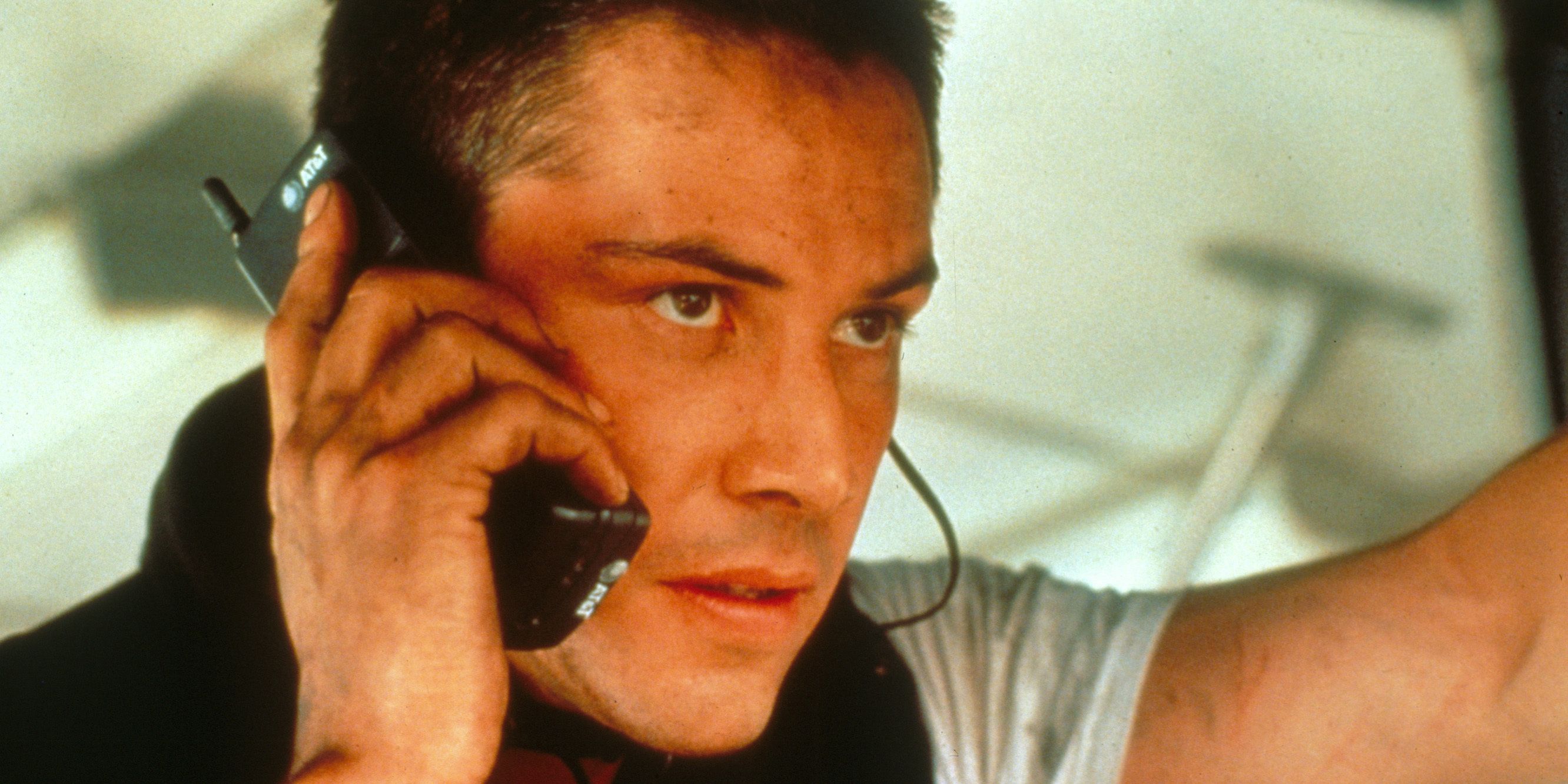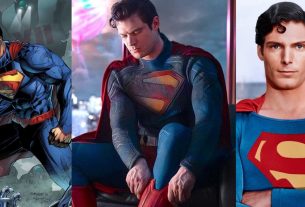The Big Picture
- The script for the movie Speed has been the subject of controversy as to who deserves writing credit, with Joss Whedon and Graham Yost at the center of the debate.
- Yost worked on the initial drafts and came up with the story and characters, while Whedon was brought in to make changes. Both had significant contributions to the finished film.
- Whedon sought additional writing credit but was ultimately denied by the Writers Guild of America. Despite the dispute, Speed‘s success is attributed to the combined efforts of both writers.
“Pop quiz, hotshot!” It’s one of the most memorable lines from psycho terrorist Howard Payne (Dennis Hopper) in the movie that truly put Keanu Reeves on the map as an A-list leading man and action hero. But the funny thing about 1994’s Speed is that no one seems to be able to pin down whom to credit for those three words that have lived on almost three decades after they were first spoken on screen. The story behind who actually wrote the screenplay is a fascinating one because there is so much uncertainty surrounding it, and there are two pretty well-known Hollywood commodities at the center of the debate.
One is writer/director/producer Joss Whedon, who penned Buffy the Vampire Slayer a few years before he got his hands on Speed and would later go on to write and direct the first two Avengers movies. The other is Graham Yost, a well-respected screenwriter/producer who most recently created the AppleTV+ hit Silo and has written other action films like Hard Rain and Broken Arrow. Both of these guys worked the screenplay for Speed, but no one seems to be able to make an outright claim as to who deserves the credit for the finished film. That apparently hasn’t set well with Whedon in the years since.
Yost Worked on ‘Speed’ First, While Whedon Punched Up The Script
For years before Sandra Bullock got behind the wheel of that city bus and had to keep the speedometer above 50 miles per hour to prevent it from exploding, Yost was putting his blood, sweat, and tears into developing characters like Bullock’s Annie Porter, Reeves’s SWAT stud Jack Traven, and the madman bomber Howard Payne. No one seems to dispute that the characters and thrust of the exhilarating story were first drawn up by Yost, who wrote the initial drafts of the movie. So, one would probably be correct in arguing that he deserves the writing credit for his brilliant idea that ended up making over $283 million at the box office. (And, for the record, Yost is the credited writer on the film.) But unfortunately for Yost, Whedon, and any cinephiles reading this with some interest in such things, it’s not that simple. It never is in Hollywood, is it? Yost planted his flag with the Writer’s Guild of America for the writing credit, and it was given to him. But that didn’t go over very well with Whedon, who was also brought in to work on the script.
Joss Whedon has been largely out of the spotlight for the last several years as allegations of inappropriate conduct first surfaced in 2021 from two of the actresses on Buffy, Charisma Carpenter and Michelle Trachtenberg. But he recently resurfaced on the podcast 50 MPH to set the story straight (at least from his perspective) on what went down with the Speed script and how the pages eventually made their way to the screen. The problems started when Whedon was called in to make some changes to the script. Yost was quoted in The Hollywood Reporter as saying, “Where things went bad between us is when he didn’t get any credit. It was like he was blaming me. I was like, ‘That’s the WGA; of course I’m going to write a letter saying I deserve sole credit. I sat with that thing for years, that’s my baby. You did great work, but they no longer allow the “additional dialogue” credit.’”
Whedon, of course, sees things differently and got into his feelings on the matter during his podcast appearance. “He (Yost) was like, ‘You’d have done the same thing.’ That really upset me. Because it’s not true. And I lived long enough to find out it wasn’t true. My next thing was Toy Story and [then-Pixar chief] John Lasseter was like, ‘I think the key animators should get screenplay credit,’ and I was like, ‘Hell yeah.’ So I was like, ‘Oh good, because I would have hated to have found out that was true. I don’t like taking credit for things I haven’t done. … It’s OK, [not getting credit] doesn’t bother me anymore. There are a lot of things out there that are mine that I care much more about.” It may not bother him now, but at the time of the dispute, Whedon took his claim all the way up to the WGA board and asked that they mediate the disagreement between the two writers and give him a writing credit. He was ultimately denied because the WGA was not awarding additional writing credits at the time. Neither was Paul Attanasio, another writer who briefly worked on the film, and who a host of 50 MPH thinks may have come up with the “Pop quiz, hotshot!” line, though Attanasio couldn’t confirm.
Keanu Reeves Was Key in Helping Whedon Shape Jack Traven
One of the things that Whedon was tasked with doing was fleshing out what kind of man Reeves’s SWAT team leader Jack Traven would come across as on screen. He was struggling with how he wanted to portray Reeves’ character until he had a discussion with the John Wick actor about the research Reeves had done into SWAT team members in preparation for the role in. Whedon recalled his exchange with the star that totally changed his mindset on the character, saying “[Reeves] talked about [doing research for the role by hanging out] with the SWAT guys and how they were unfailingly polite. [He said that] they’re only about defusing the situation, they call everybody ‘sir’ or ‘ma’am.’ It was like click — that was it. I understand this character now. My take on it was that he wasn’t a hot shot, he was a lateral thinker. He was going to do what felt right and have an odd approach to it, but generally speaking, it would work out. That ‘sir or ma’am’ gave me so much, because bluster [in action movie heroes] was the order of the day and this was the opposite.” Whedon also said that Reeves said, “I don’t want to pull my gun.” Whedon responded, “I don’t want you to either, but you kind of have to. [The studio is] not going to let you not pull your gun.”
It’s extremely rare that you see a situation like this where two separate writers seem to have a legitimate claim to the credit. And, according to that Hollywood Reporter article, there are many who worked on the film who still profess that 90% of what audiences ended up seeing in theaters was because of Whedon and the major retooling he did to the script. At the same time, how do you deny accolades to Yost, who came up with both the story and the characters that Whedon apparently improved upon and chiseled into the actual sculpture that is the ultimate 90s cinema thrill ride? The only thing we can say for sure is that Speed wouldn’t be the movie it is today without the contributions of both writers.





